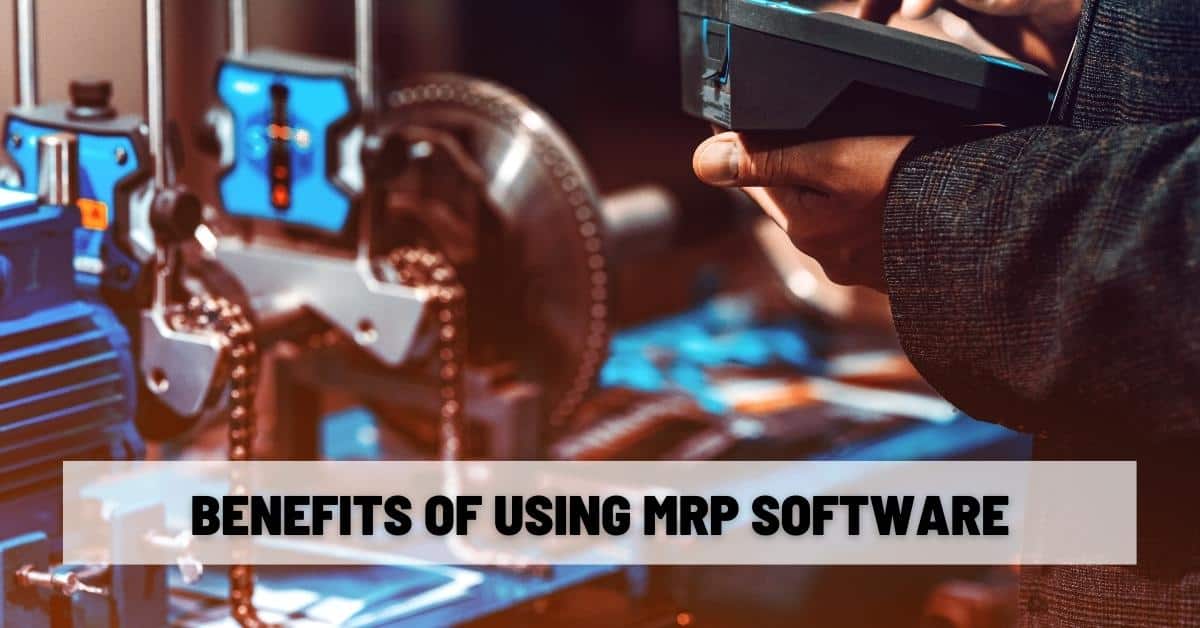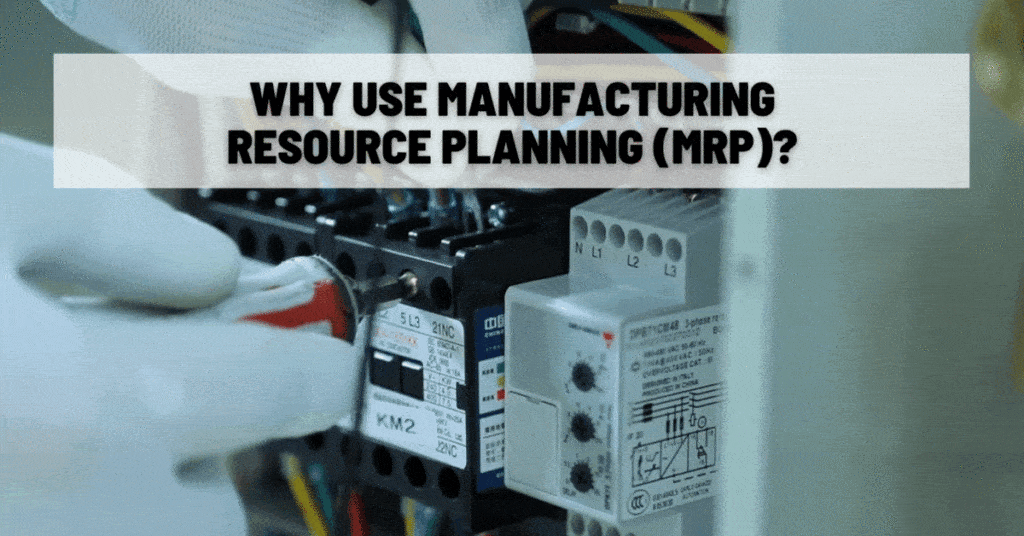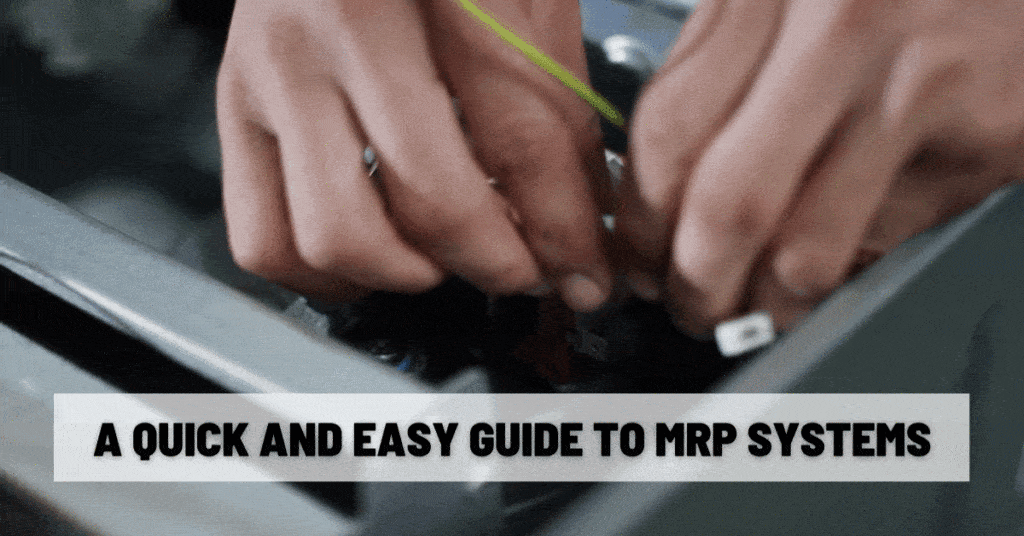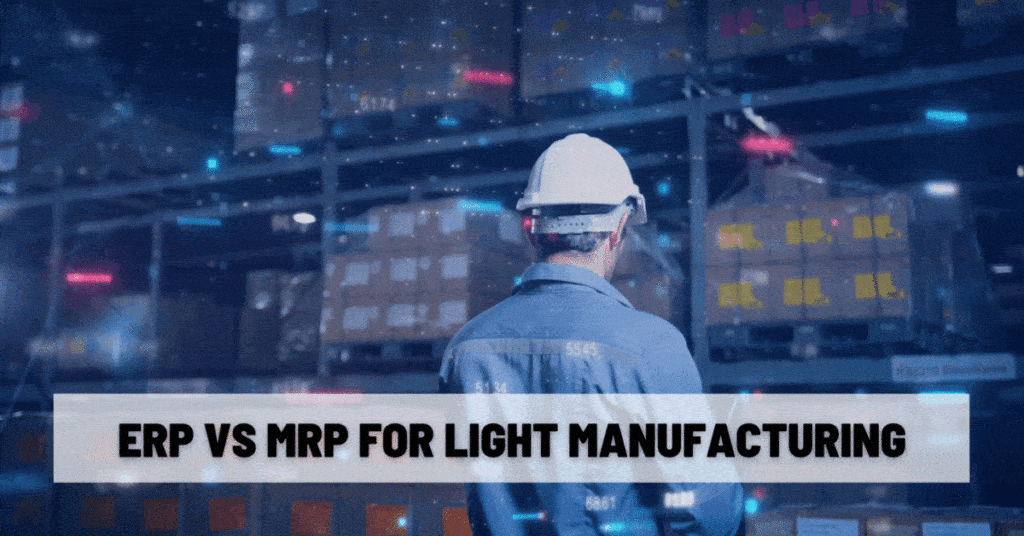Why Use Manufacturing Resource Planning (MRP)?
MRP software helps manufacturers manage their production processes by providing them with real time information about inventory levels, orders, shipments, and more.
It’s used by manufacturers to manage many (but not all) aspects of their business, from planning production schedules to tracking inventory levels.

Benefits of Using MRP Software
There are plenty of benefits to MRP features for a manufacturing business. For one, it improves efficiency by reducing errors and increasing productivity. The easy and accurate inventory counts you can get with MRP can save you a lot of headaches, as you can imagine.
Second, it lets you make better decisions based on accurate data. Maybe we’re just nerds, but nothing feels better than looking at a folder of production reports and knowing that you can trust them. That kind of reliability is really comforting when you need it.
Third, it improves customer service by providing real-time updates on order status and delivery times. If your customers don’t receive the product they want right away, you’ll hear about it. And no matter how great your team is, there will always be mistakes somewhere along the way. But having good tools can prevent delays and keep your customers happy.

How to Choose the Right Software Solution for Your Business
MRP is in many ways like an older sibling (or maybe cousin) to the more fully-featured, business-wide ERP (Enterprise Resource Planning) systems. That design lineage means that most modern ERP systems have some degree of MRP functionality as part of their wide feature-sets.
The extra manufacturing functionality of an MRP system is vital for many traditional manufacturing businesses, but a lot of light manufacturing companies that buy MRP have some buyer’s remorse and don’t use most of the features specific to an MRP-only or MRP-first product and would have been better served by a full ERP system.
We recommend considering whether your business needs the additional manufacturing functionality before choosing an MRP solution.
For example, if your business produces only finished goods—products that are ready for sale immediately after being produced—then MRP may not offer anything particularly relevant to you. However, if you also manufacture components that go into your final products, then you might benefit from the ability to track the raw material through the entire production cycle.
If you think you like the sound of these features, but you don’t want to isolate your manufacturing/inventory software from the rest of your business software, you might benefit more from a full ERP system.
When comparing MRP and/or ERP solutions, consider which ones integrate well with other programs you already use. Some vendors have made big investments in creating integration partnerships with third parties, while others have less extensive offerings.
Finally, take a look at the vendor support options available. Is the company offering phone and email tech support? Or is there a live chat option, too, to allow quick resolution of issues without needing to pick up the phone?
To find out how AcctVantage ERP (with its MRP features) can support your ongoing business growth and success, click here to get in touch with us.




